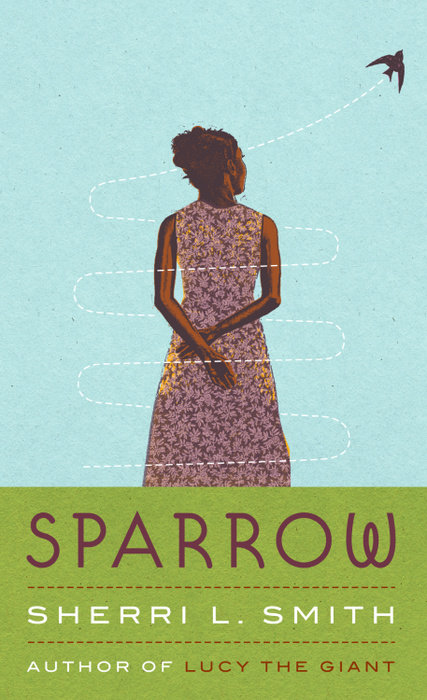1
Somebody’s singing the blues.
Somebody’s feeling like it’s the end of the world. Sorrow drowns out the running dish water in the kitchen and the honk of traffic downstairs. If I had the voice for it, I’d sing right along.
I try to follow the thread of music, but G’ma is calling loudly to me.
Today must’ve been a lonesome day, for her to pull those old records out again. No surprise, cooped up like she’s been these past months. And me, I’m not exactly a breath of fresh air. I don’t have “young friends” to bring over and “put life” into the place, as G’ma would say. My seventeen’s not the ice cream social it was for G’ma in her day. Not since it’s just the two of us.
“Kendall, are you listening to me?” she hollers through the kitchen doorway.
“Yes, ma’am.” I wash…
1
Somebody’s singing the blues.
Somebody’s feeling like it’s the end of the world. Sorrow drowns out the running dish water in the kitchen and the honk of traffic downstairs. If I had the voice for it, I’d sing right along.
I try to follow the thread of music, but G’ma is calling loudly to me.
Today must’ve been a lonesome day, for her to pull those old records out again. No surprise, cooped up like she’s been these past months. And me, I’m not exactly a breath of fresh air. I don’t have “young friends” to bring over and “put life” into the place, as G’ma would say. My seventeen’s not the ice cream social it was for G’ma in her day. Not since it’s just the two of us.
“Kendall, are you listening to me?” she hollers through the kitchen doorway.
“Yes, ma’am.” I wash the last of the lunch plates, bits of ham and sandwich spread rinsing down the drain. Of course I’m listening. Everyone in the building’s listening to her too. G’ma’s not a quiet woman when she’s upset.
“You’d better be listening, ’cause your grandmother didn’t raise a fool.”
I dry my hands and go into the living room to get my coat. G’ma’s sitting there on the sofa, waving my report card at me. For a minute, she looks like her old self again, a strong, serious woman, with skin like sweet brown coffee, not dark and bruised-looking like mine. “Cream in my coffee,” she used to say to me. “ ’Cause my mother wanted me to grow up sweet.” They forgot the sugar, I’d want to say to her some days, but she would just shush me up for sassing.
She’s got that shushing face on now. Her tough love face. I’ve seen it more than once since she took me in. And today I’ve let her down big-time.
“Now, you go right back over to that high school and tell that teacher you want to do extra-credit work, however much it takes, to get your grades back up. My granddaughter is a good student and she’s going to graduate with the rest of her class.” G’ma swats the sofa arm with my report card, then places it gently down beside her.
I sit across from the sofa on the edge of our old armchair, hands clasped and head down. “Yes, ma’am.”
The blues song fades, and another one comes up. I remember the name of this one. It’s Sarah Vaughan singing “Misty.” Look at me, I’m as helpless as a kitten up a tree . . .
“It’s only midterms,” I say, like that helps. “I know my science, and English, too. I can get my D up to a B by the end of the semester if I do well on the final.”
G’ma takes out a handkerchief and wipes invisible crumbs from her mouth. “Don’t put all your eggs in that basket,” she warns me. “You were such a good student. Stay that way. I know it’s been difficult, but don’t let this”—she waves her hand in the air—“don’t let this stop you.”
“This” means G’ma. We don’t talk about it much, but we both know the stroke she had last summer hurt her more than a little. The afghan over her lap reminds me that her legs aren’t what they used to be. Winter doesn’t help either, especially not the icy winter Chicago gets. We keep up the exercises the doctor gave her, and they help. She’s walking with a cane now. But we live on the second floor of a brownstone walk-up, and the kitchen is a long twenty steps from the sofa. So I come home at lunch and straight after school. I help her walk to the bathroom, I make dinner, breakfast, and lunch. If that means leaving English a little early, or getting to chemistry a little late, so be it. I owe G’ma more than a few skipped classes. Besides, I feel better when I’m around.
After a minute, G’ma lets me stand up.
“Lunch was okay?” I ask, grabbing my coat from the chair by the door. The smell of fried ham still hangs in the air. I boil it first, to get the salt out. G’ma likes her ham on white with mayonnaise, but she doesn’t seem to mind the low-fat spread I’ve been using instead. The doctors say anything I can do to lower her cholesterol will reduce the likelihood of another stroke.
“Very tasty,” G’ma says. “Just leave me a little water before you go. And cut off that phonograph player.”
Phonograph player. I shake my head and cut off the turntable. For all her talk of the future, G’ma has some old-fashioned ways about her that baffle me. She’d fight me tooth and nail before she’d ever let me play her a CD, and forget about a cell phone—even if we could afford one on her pension.
“Here you go.” I set down a fresh glass of water on the coffee table in front of her and kiss her papery cheek. “See you later.”
“Be good. And tell that teacher what I said.” She pats me on the shoulder. I turn the TV on to her talk shows and head out into the Chicago wind.

